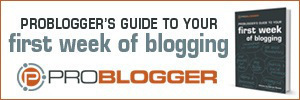Retha Groenewald's Blog: RETHA Groenewald AUTHOR, page 47
July 3, 2014
Parents of John the Baptist 2
In the days of Herod, king of Judea, there was a priest named Zechariah, of the division of Abijah. And he had a wife from the daughters of Aaron, and her name was Elizabeth. (Luke 1:5 ESV)
Luke 1:5-10 tells the story of John the Baptist’s parents, Zechariah and Elizabeth.
Zechariah means ‘God remembers’.
Elizabeth means ‘God is my oath’
Zechariah + Elizabeth = God remembers His oath.
Priestly Descendants
Aaron, brother of Moses, was ordained as the first high priest under the Law. All future high priests were descendants of him.
Aaron also married Elizabeth (Elisheba) in Exodus 6:23.
Zechariah and Elizabeth were both from the tribe of Levi and descendants of Aaron.
Zechariah was a priest of the division of Abijah, a descendant of Aaron (1 Chronicles 24:10). Israel’s priesthood was divided into 24 divisions of which Abijah’s family was the 8th of 24 divisions that was reinstated after the Babylonian exile.
One of the duties of the high priest was to burn fragrant incense on the altar of incense twice a day. And Aaron shall burn fragrant incense on it. Every morning when he dresses the lamps he shall burn it, and when Aaron sets up the lamps at twilight, he shall burn it, a regular incense offering before the Lord throughout your generations.(Exodus 30:7-8 ESV)
In Luke 1 Zachariah was chosen by lot to burn the incense. A priest served for a week twice a year in the Temple but only once in his lifetime would he get the opportunity to burn the incense.
Who was the High Priest?
During this time the high priest was appointed by the Roman government; he wasn’t God’s appointed high priest. The office of high priest had become very political and was easily bought or given to families with wealth and power; the families that accepted the Roman government and helped in enforcing their rule. King Herod was also appointed by the Roman governor.
God is a God of detail. It was part of God’s plan that Zechariah would be on duty that day and that he and his wife would become John the Baptist’s parents. Could it be that Zechariah was the real high priest through lineage and that his son would be the last high priest under the Law? Was that perhaps one of the details in the Lord’s plan? Was that why he waited until it was Zechariah’s turn to do his priestly duties, to prophecy the birth of John the Baptist?
Biblical Facts
The Bible doesn’t say, but the facts are that:
Zechariah was a priest.
Zechariah descended from Abijah, who was a descendant of Aaron.
Elizabeth was also a descendant of Aaron.
Zechariah and Elizabeth were righteous before the Lord.
They were an elderly couple.
Elizabeth was barren.
God gave her a child.
What promises of God has been fulfilled in your life? What promises are you waiting for to be fulfilled?
The post Parents of John the Baptist 2 appeared first on Retha Groenewald.
Parents of John the Baptist
In the days of Herod, king of Judea, there was a priest named Zechariah, of the division of Abijah. And he had a wife from the daughters of Aaron, and her name was Elizabeth. (Luke 1:5 ESV)
Luke 1:5-10 tells the story of John the Baptist’s parents, Zechariah and Elizabeth.
Zechariah means ‘God remembers’.
Elizabeth means ‘God is my oath’
Zechariah + Elizabeth = God remembers His oath.
Priestly Descendants
Aaron, brother of Moses, was ordained as the first high priest under the Law. All future high priests were descendants of him.
Aaron also married Elizabeth (Elisheba) in Exodus 6:23.
Zechariah and Elizabeth were both from the tribe of Levi and descendants of Aaron.
Zechariah was a priest of the division of Abijah, a descendant of Aaron (1 Chronicles 24:10). Israel’s priesthood was divided into 24 divisions of which Abijah’s family was the 8th of 24 divisions that was reinstated after the Babylonian exile.
One of the duties of the high priest was to burn fragrant incense on the altar of incense twice a day. And Aaron shall burn fragrant incense on it. Every morning when he dresses the lamps he shall burn it, and when Aaron sets up the lamps at twilight, he shall burn it, a regular incense offering before the Lord throughout your generations.(Exodus 30:7-8 ESV)
In Luke 1 Zachariah was chosen by lot to burn the incense. A priest served for a week twice a year in the Temple but only once in his lifetime would he get the opportunity to burn the incense.
Who was the High Priest?
During this time the high priest was appointed by the Roman government; he wasn’t God’s appointed high priest. The office of high priest had become very political and was easily bought or given to families with wealth and power; the families that accepted the Roman government and helped in enforcing their rule. King Herod was also appointed by the Roman governor.
God is a God of detail. It was part of God’s plan that Zechariah would be on duty that day and that he and his wife would become John the Baptist’s parents. Could it be that Zechariah was the real high priest through lineage and that his son would be the last high priest under the Law? Was that perhaps one of the details in the Lord’s plan? Was that why he waited until it was Zechariah’s turn to do his priestly duties, to prophecy the birth of John the Baptist?
Biblical Facts
The Bible doesn’t say, but the facts are that:
Zechariah was a priest.
Zechariah descended from Abijah, who was a descendant of Aaron.
Elizabeth was also a descendant of Aaron.
Zechariah and Elizabeth were righteous before the Lord.
They were an elderly couple.
Elizabeth was barren.
God gave her a child.
What promises of God has been fulfilled in your life? What promises are you waiting for to be fulfilled?
The post Parents of John the Baptist appeared first on Retha Groenewald.
John the Baptist’s Parents
In the days of Herod, king of Judea, there was a priest named Zechariah, of the division of Abijah. And he had a wife from the daughters of Aaron, and her name was Elizabeth. (Luke 1:5 ESV)
Luke 1:5-10 tells the story of John the Baptist’s parents, Zechariah and Elizabeth.
Zechariah means ‘God remembers’.
Elizabeth means ‘God is my oath’
Zechariah + Elizabeth = God remembers His oath.
Priestly Descendants
Aaron, brother of Moses, was ordained as the first high priest under the Law. All future high priests were descendants of him.
Aaron also married Elizabeth (Elisheba) in Exodus 6:23.
Zechariah and Elizabeth were both from the tribe of Levi and descendants of Aaron.
Zechariah was a priest of the division of Abijah, a descendant of Aaron (1 Chronicles 24:10). Israel’s priesthood was divided into 24 divisions of which Abijah’s family was the 8th of 24 divisions that was reinstated after the Babylonian exile.
One of the duties of the high priest was to burn fragrant incense on the altar of incense twice a day. And Aaron shall burn fragrant incense on it. Every morning when he dresses the lamps he shall burn it, and when Aaron sets up the lamps at twilight, he shall burn it, a regular incense offering before the Lord throughout your generations.(Exodus 30:7-8 ESV) In Luke 1 Zachariah was chosen by lot to burn the incense. A priest served for a week twice a year in the Temple but only once in his lifetime would he get the opportunity to burn the incense.
Who was the High Priest?
During this time the high priest was appointed by the Roman government; he wasn’t God’s appointed high priest. The office of high priest had become very political and was easily bought or given to families with wealth and power; the families that accepted the Roman government and helped in enforcing their rule. King Herod was also appointed by the Roman governor.
God is a God of detail. It was part of God’s plan that Zechariah would be on duty that day and that he and his wife would become John the Baptist’s parents. Could it be that Zechariah was the real high priest through lineage and that his son would be the last high priest under the Law? Was that perhaps one of the details in the Lord’s plan? Was that why he waited until it was Zechariah’s turn to do his priestly duties, to prophecy the birth of John the Baptist?
Biblical Facts
The Bible doesn’t say, but the facts are that:
Zechariah was a priest.
Zechariah descended from Abijah, who was a descendant of Aaron.
Elizabeth was also a descendant of Aaron.
Zechariah and Elizabeth were righteous before the Lord.
They were an elderly couple.
Elizabeth was barren.
God gave her a child.
What promises of God has been fulfilled in your life? What promises are you waiting for to be fulfilled?
 Send to Kindle
Send to KindleThe post John the Baptist’s Parents appeared first on Retha Groenewald.
Related posts:
11 Facts About Luke and the Book This entry is part 1 of 3 in the series...
Jesus was Human and God This entry is part 2 of 3 in the series...
10 Journeys Spread the Gospel Worldwide 10 individuals and groups of people in the New Testament...

July 2, 2014
Jesus was Human and God
Was Jesus human and God?
The first 4 words in the Old Testament are, “In the beginning God…”
The Gospel of John begins with, ‘In the beginning was the Word…”
Jesus the Center of the Universe
“You are the center of my universe,” declared a loved one.
Jesus is the center of the universe. Jesus Christ the human being was born about 2000 years ago.
Jesus the Word, who is God, existed before time and before the beginning of creation. God spoke creation into being.
Through Jesus everything was created in the heavenly realms and on earth. He created everything and everyone in the universe; everything that is visible and that is not.
He existed before anything else, and he holds all creation together. Colossians 1:15 (NLT)
In the beginning was the Word, and the Word was with God, and the Word was God. He was in the beginning with God. (John 1:1-2 ESV)
Jesus Human and God
John clearly explained that Jesus wasn’t a demi-god that was half-man and half-god. Jesus was fully divine and fully human; he was human and God.
For in Christ lives all the fullness of God in a human body. (Colossians 2:9 NLT)
This was difficult for the Jews and Greeks to understand.
To the Jews the Word meant:
The One who created the universe through speaking the Word (Psalm 33:6).
The Word was associated with messages from the prophets of God (Hosea 4:1).
The Word was the standard of God’s holiness. It was the Law of God. (Psalm 119:11).
The Word was another way to express God.
To the Greeks the Word meant:
It was thoughts that were still lingering in your mind.
It was the philosophies and values that guided and governed the world.
For the Jews it was blasphemous to say that Jesus, the man was also God.
For the Greeks it was unthinkable that the Word could become a man (John 1:14).
John the beloved disciple understood that Jesus Christ
Was the long-awaited Messiah
Was the Word
Was God.
He had the revelation and understanding that the Word was the Good News of Jesus Christ.
 Send to Kindle
Send to KindleThe post Jesus was Human and God appeared first on Retha Groenewald.
Related posts:
11 Facts About Luke and the Book This entry is part 1 of 3 in the series...
My Life as a Bush and my Heart for Imitating Jesus Title: MY LIFE AS A BUSH AND MY HEART...
Road to Emmaus, Wish you were There Luke 24:13-35 – Road...

July 1, 2014
10 Journeys Spread the Gospel Worldwide
10 individuals and groups of people in the New Testament journeyed and spread the Gospel worldwide.
It all began with the stoning of Stephen. It flamed the fire for Saul to actively persecute believers wherever he went.
1. Philip the Evangelist was First
Acts 8:4-40
Philip went to Samaria, probably to its main city Shechem. There he proclaimed the Gospel of Jesus Christ. Crowds gathered to hear Philip speak. Great joy filled the city when they saw the signs that followed his message. Unclean spirits were cast out and paralyzed and lame people healed.
2. Peter and John to Samaria
Acts 8:14-25
When the apostles, who had remained in Jerusalem, heard about the salvation of Samaria, they sent Peter and John to them. Philip had baptized them in the name of Jesus. Peter and John prayed and laid hands on the Samaritans so that they could receive the Holy Spirit.
3. Paul Went to Damascus
Acts 9:1-25
Paul was adamant to persecute the believers all over the world. He requested letters from the high priest to the synagogue in Damascus so that he could persecute any believers he would find in Damascus. Paul was converted on his way to Damascus when he encountered the Lord. Instead of persecuting the believers, he witnessed in the synagogue in Damascus.
4. Peter Evangelized to Gentiles
Acts 9:32-10:48
In Caesarea the Roman army officer Cornelius and his whole household was saved. Peter saw the Holy Spirit fall on all who were listening to his message.
Peter travelled from place to place. Before he reached Caesarea where he preached the Gospel to gentiles, he had visited Lydda and Joppa.
The people of Lydda and Sharon believed when Peter healed Aeneas, who was paralyzed and bedridden for 8 years.
Many believed in Joppa when Peter raised Dorcas, also known as Tabitha from the dead.
5. Barnabas Went to Find Paul
Acts 11:25-30
Barnabas went to Tarsus in search of Paul. He brought Paul back to Antioch. There they stayed for a year preaching and teaching to large crowds. Here the believers were called Christians for the first time.
6. Paul’s First Missionary Journey
Acts 13:1-14:28
The church in Antioch sent Barnabas and Paul on their first missionary journey. They went to Cyprus and to many cities in Galatia and surrounding areas. They took John Mark as an assistant with them. At their second stop John Mark left them and returned to Jerusalem.
7. Barnabas and John Mark
Acts 15:36-41
Barnabas suggested to Paul that they should revisit all the places they went to during their first missionary journey. He wanted to take John Mark with them, but Paul said no. Their disagreement caused them to separate from each other and go their own direction. John Mark accompanied Barnabas to Cyprus.
8. Paul’s Second Missionary Journey
Acts 15:36-18:22
Paul chose Silas to go with him to revisit the cities he and Barnabas had gone to during his first journey. Luke and Timothy also joined Paul on this journey. God had greater plans for Paul and from Galatia they traveled to Asia, Macedonia and Achaia.
9. Apollos the Talented Public Speaker
Acts 18:24-28
Apollos was from Alexandria in Egypt. He arrived in Ephesus after Paul had left. He only knew about John’s baptism. Priscilla and Aquila explained to him the whole Gospel, about Jesus’s death, resurrection and the Holy Spirit. He left for Achaia and preached in Athens and Corinth.
10.Paul’s Third Missionary Journey
Acts 18:23; 19:1-21:14
Timothy and Erastus joined Paul on his third journey. They revisited places from his earlier journeys in Galatia, Asia, Macedonia, and Achaia.
The good news of Jesus Christ changed the world.
 Send to Kindle
Send to KindleThe post 10 Journeys Spread the Gospel Worldwide appeared first on Retha Groenewald.
Related posts:
Philip the Evangelist First, Before Paul Philip, the evangelist, was one of the first people to...
11 Facts About Luke and the Book This entry is part 1 of 1 in the series...
God Speaks Bible Introduced FaithWriters FaithWriters runs writing contests for Christian Writers on a...

11 Facts About Luke and the Book
Many people have set out to write accounts about the events that have been fulfilled among us. They used the eyewitness reports circulating among us from the early disciples. Having carefully investigated everything from the beginning, I also have decided to write a careful account for you, most honorable Theophilus, so you can be certain of the truth of everything you were taught. (Luke 1:1–4 NLT).
Who was Luke?
Early Christian writings accepted Luke as the author of 2 books, Luke and Acts.
He was the only Gentile author of a New Testament book. According to Colossians 4:10-14, Luke was not ‘of the circumcision’, meaning he was not Jewish; he was a Gentile.
He was a physician. Perhaps as a physician he took greater interest in the birth of two very important babies a few months apart, John the Baptist and Jesus Christ.
He was an educated man and wrote in high Greek style.
He was not one of the 12 disciples, and was not there at the beginning (John 15:27).
He knew Paul, maybe as a loyal friend. He travelled with Paul and was present at some events that took place in Acts.
Heis mentioned 3 times in the letters of Paul in the New Testament.
Colossians 4:14
2 Timothy 4:11 (LEB)
Philemon 24 (LEB)
About the book
Luke documented the facts about Christ, from Jesus’ birth, His ministry, death and resurrection, in the form of a letter.
The letter was written to a ‘lover of God’ for that is what the name Theophilus means.
The purpose of the letter was to give the reader clarity and certainty and the truth about Jesus Christ.
The Book Luke has 24 chapters and is the longest of the four Gospels.
Who was Theophilus?
Perhaps he was a Roman official,
Someone of high social standing or
Someone who received teachings about Christianity and was seeking the truth or
Maybe all the above.
Luke and the Book
Luke wrote in an orderly manner an exact account of the life of Jesus Christ. How did he do it?
He personally investigated all facts.
He researched the material.
He interviewed eyewitnesses, people who were there.
For we did not follow cleverly devised myths when we made known to you the power and coming of our Lord Jesus Christ, but we were eyewitnesses of his majesty. (2 Peter 1:16 ESV)
That which was from the beginning, which we have heard, which we have seen with our eyes, which we looked upon and have touched with our hands, concerning the word of life— (1 John 1:1 ESV)
He listened to the testimonies of those who had ministered the Word, to the preaching and oral accounts of the apostles.
The Holy Spirit guided him.
Luke’s training as a physician allowed him to use logic and facts when he wrote the story of Jesus Christ.
 Send to Kindle
Send to KindleThe post 11 Facts About Luke and the Book appeared first on Retha Groenewald.
Related posts:
Jesus published by Rose Publishing Title: Jesus Series: Rose...
Road to Emmaus, Wish you were There Luke 24:13-35 – Road...
I DIDN’T KNOW VIRTUAL BOOK TOUR with YVETTE ALLEN- TATUM April 1- April 30, 2014...

June 30, 2014
Philip the Evangelist First, Before Paul
Philip, the evangelist, was one of the first people to obey Jesus’ command to spread the Gospel.
Acts 6:1-7
Acts 8:5-40
Acts 21:8-10
Philip Chosen as One of the 7
Hellenists, Greek speaking Jews from the Diaspora, complained to the disciples that their widows were neglected with daily food distribution. Possibly, the Aramaic speaking disciples weren’t as fluent in Greek. This language barrier could’ve been the cause these widows were overlooked.
It wasn’t intentional. When the 12 disciples received the complaint, they rectified the situation immediately. They called all the disciples together; they suggested they chose 7 from among them who were
well-respected,
full of the Holy Spirit, and
had wisdom
Philip was among the 7 men chosen for this duty of overseeing the food distribution.
Persecution Forced Philip, the Evangelist to Flee
Stephen’s death was followed by extensive persecution of the believers in Jesus Christ. This resulted in believers spreading the good news wherever they went.
Paul was actively persecuting the believers when Philip fled to Samaria. There he preached the Gospel to the Samaritan’s, an ethnically mixed group of partly Jew and partly Gentile. His message confirmed with signs of healing and casting out evil spirits.
Simon the Magician Saved
Simon was a magician who had amazed the Samaritans for a long time. The all paid attention to him and thought he was great, until….
When Philip told them about Jesus Christ and the kingdom of God, they believed. Large crowds of Samaritans believed and were baptized, including Simon. Simon followed Philip and was amazed at the signs and miracles performed.
The apostles in Jerusalem sent Peter and John to pray and lay hands on them to receive the Holy Spirit.
Angel Sent Philip to Gaza
An angel of the Lord instructed Philip to follow the road south to Gaza. Gaza was the last stop for water from Jerusalem to Egypt.
On this road Philip met a court official and treasurer of Candace, the queen of Ethiopia. He was returning from Jerusalem where he had worshipped. Seated in his chariot he was reading from the book of the prophet Isaiah.
He was oppressed and treated harshly, yet he never said a word. He was led like a lamb to the slaughter. And as a sheep is silent before the shearers, he did not open his mouth. Unjustly condemned, he was led away. No one cared that he died without descendants, that his life was cut short in midstream. But he was struck down for the rebellion of my people. (Isaiah 53:7–8 NLT)
Led by the Holy Spirit, Philip ran to the chariot and asked the Ethiopian whether he understood what he was reading. The Ethiopian invited Philip to join him and to tell him who Isaiah was talking about.
Philip Baptized the Ethiopian
The Ethiopian believed the Gospel and was saved. When they came to water, he asked to be baptized. As he came out of the water, the Holy Spirit carried Philip away, and he didn’t see Philip anymore.
Philip found himself in Azotus. He preached the good news in every town until he reached Caesarea.
Caesarea Philip’s New Home
Caesarea was originally a small harbor town. Rebuilt by Herod the Great, it developed into a large Greek speaking population. Herod improved the harbor, built a palace out into the sea, an amphitheater shaped like a hippodrome for horse races and the great aqueduct (the ruins are still there today).
Philip, the evangelist, settled and made Caesarea his new home.
During one of Paul’s journeys, he stayed with Philip in Caesarea. He met Philip’s four daughters who prophesied. It was during this time that Agabus came from Judea. The prophet bound his own feet and hands with Paul’s belt and prophesied his capture in Jerusalem.
 Send to Kindle
Send to KindleThe post Philip the Evangelist First, Before Paul appeared first on Retha Groenewald.
Related posts:
Road to Emmaus, Wish you were There Luke 24:13-35 – Road...

June 27, 2014
I Know the Plans I have for you

The post I know the plans is about God had plans for Judah. He also has plans for you.
 Send to Kindle
Send to KindleThe post I Know the Plans I have for you appeared first on Retha Groenewald.
Related posts:
I know the plans I know the plans I have for you, says the...

June 25, 2014
ProBlogger Resources for your Blog
There are terrific resources available on-line. These ProBlogger resources are resources used and recommended by me.
Disclaimer: In order to maintain transparency with you, I disclose that when you click on a link to buy, I earn affiliate commission. There is no increase in cost to you. Thank you for your support. Should you have any further queries please contact me.
Blogging Resources
My journey as a Christian blogger began with online research. ProBlogger was the first site I came across. After reading Darren Rowse’s bio, I knew I had found the expert in blogging. My first purchase was 31 Days to Build A Better Blog.
Click here to visit ProBlogger.
31 Days To Build A Better Blog
Click here to view more details

Problogger’s Guide to Your First Week of Blogging
Click here to view more details

The Problogger Scorecard
Click here to view more details

Problogger’s Guide to Blogging For Your Business
Click here to view more details

The Blogger’s Guide to Online Marketing
Click here to view more details

BlogWise Become a Productive & Profilic Blogger
Click here to view more details

 Send to Kindle
Send to KindleThe post ProBlogger Resources for your Blog appeared first on Retha Groenewald.
Related posts:
2013 Ultimate Blog Party Welcome to the party What: The Ultimate...
Ultimate Blog Party 2013 Welcome to the party What: The Ultimate...
Build a chain link – Day 15 This entry is part 15 of 26 in the series...

June 23, 2014
Biannual Blogathon Bash Wrap Up June 2014
Biannual Blogathon Bash Wrap Up
Once again I take my hat off to the host Kathleen Garber and the other mini challenge hosts. Every time I take part, I’m amazed at the quality and interesting challenges that are available.
I’ve learned a lot,
enjoyed myself tremendously, and
got some blogging work done as well.
At the first twitter party we chatted about to-do lists. One of the participants, Judy Jordan Scot, mentioned the to-dos and the ta-das. Here is what I’ve accomplished this weekend, my ta-da list.
From To-Do to Ta-Da
I participated in the following mini challenges. Although I completed the challenges, some tasks will be ongoing.
Learn How to Configure Your Twitter Handle
It’s the small things that make the big difference in the end. A little thing like a Twitter handle can impact the sharing of your posts. Thanks to Leila from Life as Leels who reminded us how important it is. She was extremely helpful in assisting if you had questions about the Twitter Handle.
Get Organized With These Must-Do Blog Tasks
Megan at Shaping Up to be a Mom gave me a great idea for organizing my daily tasks. She adds a folder to the bookmark tab. Then she adds all the daily links in the folder. This in itself has made my life so much easier.
Her list of daily tasks is all relevant and should be on every blogger’s list.
Present a User Friendly Layout
Jennifer at Dancing in the Rain gave the following tips improve your blog layout.
Remove obnoxious widgets
Clean out the sidebar. You can’t have everything on your sidebar, so choose wisely.
Install a new comment platform.
Install a set of social media icons that are easy to find.
Install a post sharing widget to make it easier for readers to share posts.
Your color schemes should be pleasing to the eye.
Most of these tips I do on my website. With the merging of my blogs, I couldn’t use everything on all the blogs, so I chose wisely what to use and what not to.
The Whys and Hows of a Newsletter for Your Blog
This mini challenge by Michelle at Divas with a Purpose is the challenge that intrigued me the most. I’m in the process of creating a newsletter, so this came at the right time.
My newsletter title is: WOW Christian Gazette.
The content will be an article on Christian living practical tips and links to the latest posts in the main categories on my website.
I’m in the process of learning how MailChimp works.
Ready to Set Up an Affiliate Program for your Blog?
Michelle at Divas with a Purpose gave me the extra nudge with this mini challenges. On my to-do list for my blog is to create eBooks. The next step will be setting up the affiliate program.
7 Key Things Your Blog Should Have
Mini Challenges hosted by Kimberly at Kimberly by Keystrokes are always worthwhile to do. It takes time to complete here challenges and often it’s something you’ll continue to work on after the Blogathon. However, they contain important tips that will enhance and improve your blog.
The key things she mentions are important for a website/blog and I’m in the process of adding them. I have completed:
Contact Me page
Social Media and Sharing buttons
Categories
I have a Newsroom page and will probably add the About Me page.
Past Mini Challenge – Categories and Tags
I found this mini challenge hosted by For Display of His Splendor on the January 2014 mini challenge list. I was so pleased, because this is one of the main tasks I wanted to work on this weekend. With great comments on the Facebook Group page, I decided to use
a few main categories – Christian Fiction, Bible Fascination, What is New, Writing Services, Quizzes and Quests
then to add subcategories and also
to use tags.
Making a Blog Header
I installed Gimp.org and went through the steps set out by Shades of Rose Media to make a blog header/banner.
The header was doing great until time ran out and I battled with adding text. For some reason I can’t get this right.
The Blogathon has run its course for June 2014 BUT there is a great surprise for later this year. Want to know what it is? Go to Blogathon Facebook Group or to Biannual Blogathon Bash website to wait for the announcement.
Bye, see you at the next Blogathon!
 Send to Kindle
Send to KindleThe post Biannual Blogathon Bash Wrap Up June 2014 appeared first on Retha Groenewald.
Related posts:
Biannual Blogathon Bash June 2014 Kick-Off 6th Biannual Blogathon Bash has started! When: 20-23...
Biannual Blogathon Bash June 2013 Wrap-up Biannual Blogathon Bash Wrap-UP This has been an excellent Biannual...
Biannual Blogathon Bash Yes it is Blogathon time again. Host: Kathleen Garber at...

RETHA Groenewald AUTHOR
- Retha Groenewald's profile
- 24 followers




